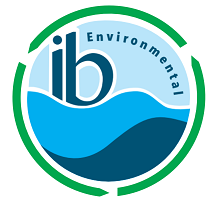Local Committees/Cohorts: Amplifying Voices for Climate Action
By Rita Moore
The last few posts showed how a regular homeowner can contribute to energy efficiency and renewable energy at their own home or office. However, another way that “regular” citizens can move the needle forward is by serving with their local government. Meaningful change at the local level is an important way to make an energy impact on your community. Unlike national-level initiatives, these smaller committees can target community specific needs and challenges. Additionally, change at the local level often occurs more rapidly and can be implemented before more formal legislation is enacted. County/city committees offer such a platform for their residents. Dekalb County in Georgia has some unique opportunities for its residents to get involved right now that are explained below. Hopefully this post from one young woman’s experience on her own town’s energy committee convinces you to get involved at your local government.
The Clean Energy Transition project in DeKalb County provides some important opportunities for citizens to engage.
Dekalb County
DeKalb County is taking the opportunity to preserve the environment and take a stand against climate change. The vision of the Green New Deal in DeKalb is to bring forward-thinking solutions to the County. Bringing this vision to reality will require the effort of all stakeholders. These include the commissioners, consultants, agencies, and, most importantly, residents.
The Climate Cohort is one such avenue in this program. It was created as a platform for residents’ voices, a way for them to be proactive community members to lead the charge against climate change. Here are events and resources related to this:
November 8, 2023 Session 2 - Dekalb’s Clean Energy Transportation Transition Plan
Information about the Clean Energy Plan can be found on the following website:
https://cleanenergydeka
In another local government, far away from DeKalb County, a thirty-something year old woman participated in conversations about energy and resource use through her small coastal town's Energy Committee. The goal of this committee is to advise the Town Council on strategies that promote energy efficiency, savings, and reducing the environmental impact of the Town's energy usage through providing educational outreach and assistance to citizens.
The committee meets monthly to review the information they plan to present to the Town Council. During these sessions, they discuss each topic, the research being conducted, and their collective recommendations. Occasionally, the committee is asked to provide input on larger town projects, particularly how they align with the community's energy strategies.
A primary concern for this town's committee is community resilience, which is especially significant given its coastal location. The ever-present threat of sea-level rise heavily influences their decision-making. They strive to develop strategies that protect and strengthen the town in the face of climate-related challenges.
Here are a couple of topics that have been discussed:
Energy Resilience Centers: The town is working towards establishing energy resilience centers, which involve transforming community centers and schools into hubs equipped with solar panels and backup generators. These centers will act as essential safe havens during adverse weather events or power outages, providing support and resources to those in need. In addition, by creating these critical spaces, they are fostering a sense of community preparedness and solidarity in the face of unforeseen challenges.
Solar Panels: A key focus of their renewable and alternative energy advocacy is the promotion of solar panel installations on town buildings. One such push is the equipping of schools with solar panels. This will generate significant cost savings for the school district and offer valuable educational opportunities during the transition to sustainable energy.[1] Another bonus is that teachers and students with electric vehicles can benefit from on-site charging facilities during the school day. Embracing clean energy solutions in such a big way sets a standard for the whole community.
Promotion of EVs: The committee has advocated for a gradual transition to EVs for the town's public service vehicles. These include the adoption of EV school buses as well as EV police cars. Many counties, cities, and towns are looking into similar transitions in having all EV vehicle fleets.
These are just a few things discussed in this woman’s nine months on the committee. Serving at this level has allowed her to start small and gain experience and an understanding of how rules are enacted at this level. Having shared her journey and experiences with the town committee, she hopes it has demonstrated how empowering it has been to make her voice heard in her community.
This woman says, “I have found empowerment through participation in local projects, realizing that the smallest effort can resonate throughout the community. I encourage everyone – especially our young people, women, and individuals from diverse backgrounds – to join a town committee or board, and actively shape the future of their community.” Hopefully, this inspires you to get involved in your own community. And if that community happens to be DeKalb County, GA, we will see you at one of the events above!
If you are interested in actions you can take at your own home, take a look the previous blog posts in this series here:
Low Energy Assistance Programs in Georgia
This blog post is part of the community engagement associated with the County’s “Clean Energy Transition” project.
[1] https://www.nytimes.com/2022/09/15/climate/solar-energy-school-funding.html
https://sustainablesolutions.duke-energy.com/resources/benefits-of-solar-panels-for-schools/
Subscribe Here
Sign up with your email address to receive notices of new blog updates. We post about once per month.

